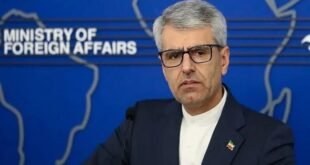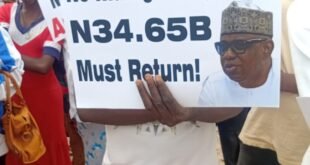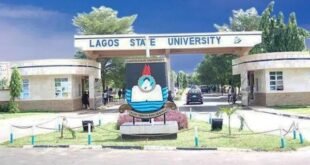Nigeria urges Brics to support climatic justice and health equity in Cop30
Brasilia (basic reporter) The Minister of Foreign Affairs of Nigeria, the ambassador Yusuf Maitama Tugar, invited the Brics nations to guide a transformative global agenda that faces the twin challenges of climate change and health inequality.
Speaking on behalf of President Bola Ahmed Tinubu and the Nigerian delegation, Amb. Tugar has held an address that outlines the vision of Nigeria for a right transition and the need for urgent and unified action.
Tugar stressed that the health of the planet and the health of people from cities to rural communities are intrinsically linked and must be treated as such. “The climatic emergency is not borders. Just like global health care, we solve our problems when we work together,” he said.
Although it contributes to the minimal to global emissions, Africa is influenced in an disproportionate way by climate change, said the minister. He mentioned examples from Nigeria, including mortal floods in Mokwa, increasing desertification in the North and increasing the levels of the sea in the Niger delta, which are all putting to the test and means of subsistence.
“Climate change is not a” problem of tomorrow “for Nigeria”, observed Tuggar, expressing condolences to the victims of recent natural catastrophes. He drew attention to Nigeria’s investments in renewable energy, including Hydro and Solar and said the country’s commitment to initiatives such as the African carbon market and the large green wall.
He urged Brics to increase support for climate financing for development nations, stating that this assistance would allow the global south to pursue ambitious climatic objectives while maintaining economic growth. “We believe that Cop30 must grasp the challenge of allowing the global South to grow economically, safeguarding our collective responsibility to face the challenge of climate change,” he said.
On global health, Tuggar warned that the inequalities exhibited by the Covid-19 pandemic require a complete reinvention of global health systems. “So many children would still die of malaria if this was a playing field?” he asked. “Covid-19 was a tragedy, but also a warning.
He reaffirmed the readiness of Nigeria to strengthen South-South health diplomacy through hub of regional vaccines, research of biotechnology and genomic and transfer of skills. The goal, he said, is to prevent health crises induced by the climate and ensure that no child dies due to lack of access to routine health care.
Tuggar has outlined the long -term vision of Nigeria 2050, which tries to integrate renewable energy, urban efficiency and climatic resilience in national planning. The plan includes reforestation and sustainable agriculture projects, as well as sharing of knowledge with countries in Africa, Asia and Latin America.
“Nigeria has always satisfied its obligations pursuant to the Paris agreement,” said, asking for a deeper cooperation with Brics to achieve universal health coverage, climatic justice and greater pandemic preparation.
Basic journalists report that while they close his observations, Amb. Tuggar has urged Cop30 to go up above “sterile diplomacy and teeth”, claiming that Brics is well positioned to offer a new structure to face old and emerging challenges. “Nigeria believes in solidarity, but we also recognize personal interest and nothing helps us to help ourselves more than working together,” he concluded.
 JamzNG Latest News, Gist, Entertainment in Nigeria
JamzNG Latest News, Gist, Entertainment in Nigeria









